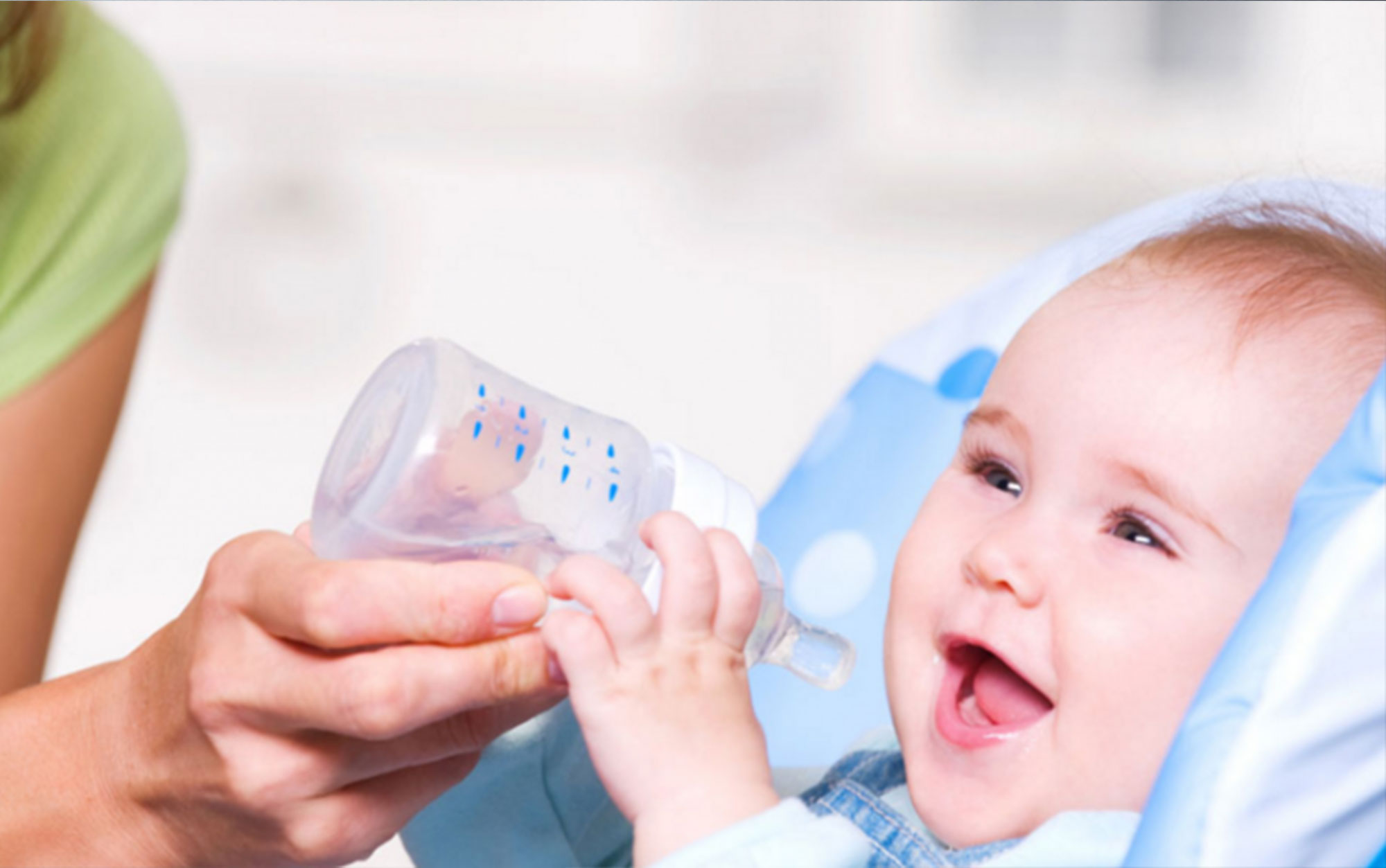Expert Tips

Doing It All: Lily Kandalaft, Founder Of Malaak Mama And Baby Care
Lily Kandalaft, founder of Malaak. "It was 'mom guilt' that inspired me to establish this business," says Lily Kandalaft, founder of Dubai-based maternity and childcare agency Malaak Mama and Baby Care. "Becoming a mother is challenging, and one of the most daunting parts is the struggle of leaving your baby....
Read More
Introducing Bottle-Feedings to Your Breastfed Baby
https://youtu.be/AMWuY1n9dCU As a new parent, you have many important decisions to make. One is to choose whether to breastfeed your baby or bottle feed using infant formula. Breastfeeding has a range of benefits and health experts agree that breastfeeding is the healthiest option for both mama and baby. They....
Read More
Does the working mama balance exist?
Being a mama is a full-time job. Having a job is challenging. When you put these two things together, you get the most challenging job in the world. We want it all and we should be able to have it, but is it realistic? How do you achieve balance....
Read More
Baby Blues or Postpartum Depression?
Becoming a new Mama is always a joyous occasion, but the excitement of having a new baby can be overshadowed by feelings of sadness and mood swings. “Many new mamas may experience feelings of sadness, anxiety, crying and mood swings after giving birth,” says Cecile de Scally, Malaak’s Lead....
Read More
The Bottom Line on Sleep Training
Does your baby need to be rocked to sleep by you or wakes up in the middle of the night demanding a breast, bottle or cuddle before drifting back to sleep? If your little one is at least 4 months old, it may be time to start sleep training.....
Read More
How much milk does a newborn need in the first few days?
Each baby has different feeding requirements. As the days go by, your baby will need little but increasing amounts of milk. Breastfed babies don’t need large amounts of milk at each feed. Babies who are formula fed may take larger amounts than breastfed baits. Formula-fed babies can’t control their....
Read More
How can I get my baby to sleep through the night?
Encourage your baby to eat her full meals during the day. Make daytime feeds social and lively and night time feeds calm and quiet to help her distinguish between day and night. Allow your baby to settle herself to sleep from six weeks onwards. Set a consistent bedtime routine....
Read More
When can my baby start using a pacifier?
If you are breastfeeding, it is advisable to hold off using pacifiers and bottles until breastfeeding is established and going smoothly. For some babies that could be as early as two weeks, others it will be at six weeks or later. This is to avoid nipple confusion when babies....
Read More
When should I give my baby the first bath?
Usually your baby won’t be given a bath straight after she’s born because they will need to stay warm. Your midwife will usually just wipe and dry your baby using clean, warm towels. If you want to give your baby a bath, it should be safe to do so....
Read More
How much formula does my baby need?
If your baby isn’t eating solids yet, there’s a rough guide that you can use to work out how much formula your baby needs. Your baby will want between 150ml and 200ml of formula per kilogram of his body weight per day. So if your baby weighs 3kg, she....
Read More
When can my baby drink water?
Until your baby is around 6 months old they will get adequate hydration they need from breast milk or formula, even in hot weather. Giving a baby younger than 6 months old too much water can interfere with his body’s ability to absorb the nutrients in breast milk or....
Read More
How often should you give your baby a bath?
It is really up to you on how often you would like to give your baby a bath. Bathing him once or twice a week is fine during the first couple of months. It really depends on your preference. Some parents like to give their baby a daily bath....
Read More
Breast pumping tips
Breast pumping will help you share the feeding duties to allow more time to sleep or ensure a smooth transition back to work. Here are some tips for pumping successfully: Buy the best pump you can afford. This will make it easier to breastfeed for longer. No matter how....
Read More
Why does my baby cry all the time?
Your baby may be crying due to the following reasons: He is hungry. He has a wet nappy and needs changing. He is uncomfortable. Check his clothes for any tags out of place that might be uncomfortable for him. He has gas. Try to burp him in this case.....
Read More
When can my baby start solid food?
You can introduce solids anytime between 4 and 6 months if your baby is ready. Until then, breast milk or formula provides all the calories and nourishment your baby needs and can handle. Your baby will provide clear signs when they are ready for solids. These include: Steady head....
Read More
Breastfeeding is painful! What can I do?
There are a number of reasons for painful feeding. These include swollen breasts, enlarged or inverted nipples, blocked milk ducts, mastitis, thrush or improper latching or positioning. There are a few techniques that can help heal or prevent soreness: – Make sure your breast is soft enough for your....
Read More
What is the best sleep routine to use?
When your baby is six weeks old, she may be ready to start following a sleeping routine. You need to pay attention to your baby’s own natural temperament and let her take the lead in the beginning. The 7am to 7pm routine is usually found to be the one....
Read More
How can I increase my milk supply?
There are a number of ways you can help increase your milk supply. Firstly, encourage your baby to breastfeed frequently and for as long as she wants. Offer both breasts for feeding allowing the baby to finish the milk in the first breast to ensure intake of the nutritious....
Read More
How long do I have to breastfeed my baby?
If possible, try to give your baby nothing but breast milk until she is six months old. Exclusive breastfeeding will give her the best possible healthy start in life! When your baby is ready to start solid food at six months, you can still carry on breastfeeding or switch....
Read More
What can I do to help my colicky baby?
Doctors define colic as 3 or more hours a day of continued crying, 3 days a week, 3 days in a row. There is no single treatment that always gives relief to infants with colic but there are a few trips you can try: Make sure your baby is....
Read More
What can I do to prevent SIDS?
Although it still unclear what actually causes sudden infant death syndrome (SIDS) studies in recent years have proved certain techniques that help to significantly reduce the risk. Always put your baby to sleep on their back, even for naps during the day. Allowing babies to sleep on their sides....
Read More


































